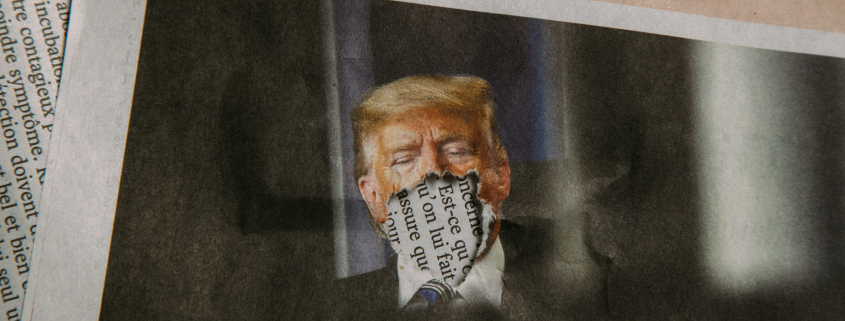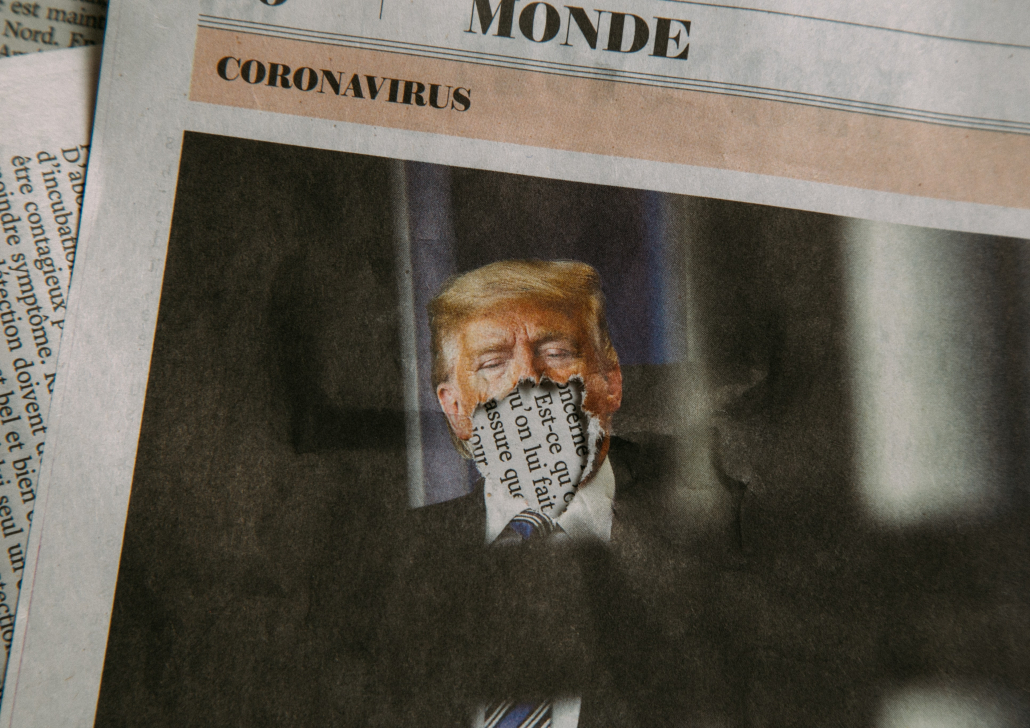The Eck’s Factor: The right’s adoption of “Orwellian” is misguided
Picture this: Twenty years from now, the next generation of high school students unveil their AP U.S. History Exam. The free response section projects a simple screenshot of a digital screen. Donald J. Trump. 45th President of the United States. Twitter account suspended.
The question may ask students to analyze every moment leading up to this decision by the social media company: the unprecedented outcome of the 2016 election, the Trumpism movement, the first impeachment trial, the 2020 election and finally, the atrocious — yet totally predictable, if you ask me — domestic terrorist attacks on the Capitol.
How did we get here?
Since the suspension of Trump’s Twitter account, the conversation surrounding free speech has resurfaced, particularly with the trending hashtag “1984IsHere.” However, this application of the term “Orwellian” to our society becomes complicated when considering the history behind “1984” and Orwell’s purpose in writing it: to warn against totalitarianism on both sides of the political spectrum.
Blatantly, Twitter’s ban of Trump’s account does not parallel an Orwellian society by any means. While approaching modern political strife, we must refocus our application of Orwell’s warning.
Originally published in 1949, George Orwell’s “1984” encapsulates a dystopian society overrun by a totalitarian overlord, “Big Brother,” where “Thought Police” monitor citizens’ psyches and arrest dissenters. After its publication, the right and left wings raced to apply the novel’s meaning in the context of the political climate.
Orwell, a self-proclaimed Democratic socialist, wrote the novel while fighting against Francoist fascism as part of the Workers’ Party of Marxist Unification in the Spanish Civil War. However, Stalinist forces turned against the POUM, and Orwell found himself in the middle of left wing and ring wing totalitarianism. As an anti-Stalinist, Orwell ultimately wrote “1984” as a warning against totalitarianism on both sides of the political spectrum — Stalin’s communist state in Russia and Franco’s fascist rule in Spain.
Contemporarily, we are again experiencing a race to claim the meaning behind “1984.” The right wing throws around “Orwellian” to argue against “communism,” or at least against their own perception of leftist ideologies. The left wing uses it to denounce the fascist tendencies of the GOP.
Particularly, opinions surrounding free speech follow a paradigm of weaponizing dystopian classics, whether it be Ray Bradbury’s “Fahrenheit 451,” Aldous Huxley’s “Brave New World” or “1984” in this case. These repetitive arguments nearly always circle back to censorship as a trademark of nightmare societies like in “1984.” For example, the GOP uses “Orwellian” to describe Trump’s Twitter ban as an infringement on the right of free speech. This also happens when universities block conservative speakers like Ben Shapiro.
However, these arguments dismiss the reasons behind these bans. Expressing your opinion on Twitter or speaking at a university are not guaranteed rights. Twitter is a social media platform that has user guidelines, and Trump violated these by inciting an insurgency. Ben Shapiro’s radical ideology provokes hate against marginalized communities particularly vulnerable to violence. Trump can still exercise his right of free speech through other platforms, as can Ben Shapiro.
Simply put, these lazy freedom of speech arguments misinterpret the meaning behind “1984.” In this country, the remnants of McCarthyism permeate deeply — Americans instantly equate communism and socialism to Stalinism. We live in an age of misinformation, where politicians cannot develop a platform beyond mislabeling their opponent as a “socialist” — President Joe Biden and the “radical left.”
In fact, according to the political compass, Hilary Clinton and Trump, a prominent Democrat and Republican respectively, are both closer to the far right than the far left. Comparing this to a universal political spectrum, Democrats and Republicans are both closer to ideologies like fascism than they are to ideologies like socialism. The United States is a capitalist state, and U.S. centrists repeatedly deem left wing ideology, such as that of Democratic socialists, as too radical. Universal health care, a staple of almost every other developed nation, remains a dream in the nightmare of people unable to afford insulin.
However, as fascist nations do, we still control the reproductive health of women. We still execute inmates on federal death row. Congress booed Rep. Cori Bush for condemning white supremacy during Trump’s second impeachment trial. If we want to talk about “1984,” these tendencies are closer to totalitarianism than holding violent fascists accountable for condoning white supremacy.
More than three decades have passed since 1984. It’s time to progress toward a different future where we need not be reminded of the nightmares that the Capitol terrorist attacks exposed. Otherwise, our society will continue to haunt us.
Matthew Eck is a junior writing about hot-button social issues. His column, “The Eck’s Factor,” runs every other Tuesday.


